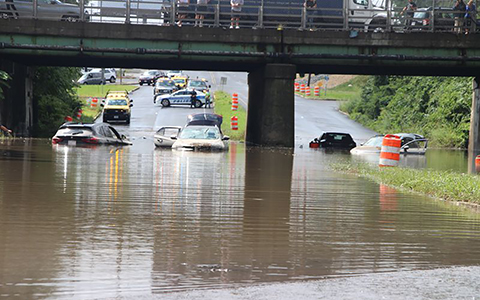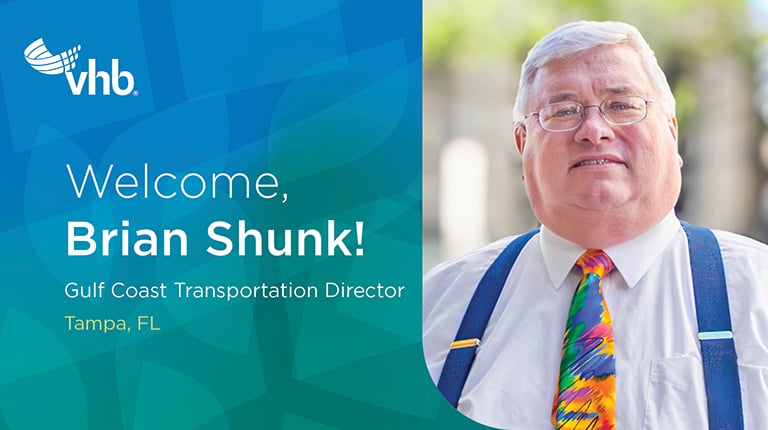
VHB has helped Massachusetts Department of Transportation and Rhode Island Department of Transportation secure PROTECT (Promoting Resilient Operations for Transformative, Efficient, and Cost-saving Transportation) grant funding for resiliency projects. Both projects reflect VHB’s strong relationships with the DOTs and indispensable integration with clients’ water resources efforts.
MassDOT
For MassDOT, VHB’s Mark Costa prepared the PROTECT grant application to secure construction funding to support flood relief on Route 20, Grafton Street (Route 122) Interchange to Flint Pond. Currently, a section of Route 20 at the Route 122 interchange in Worcester, Massachusetts, experiences flooding during high intensity rainfall events up to 10 times per year, often causing traffic closures to avoid hydroplaning accidents and risk of submerged vehicles. This drainage infrastructure improvement project will alleviate flooding and improve water quality.
Route 20 is a critical component of the City of Worcester’s transportation infrastructure, supporting economic growth and facilitating the movement of people and goods throughout the region. It serves as a major east-west corridor through the city and connects Worcester to other Massachusetts cities, including Boston and Springfield. Route 20 at the Route 122 interchange serves as a major gateway to the city and provides access to important local destinations, including Worcester Regional Airport, from other parts of Massachusetts and beyond.
RIDOT
RIDOT sought funding for its stormwater treatment program, Turning the Tide: Local, Nature-Based Solutions to Promote Climate Resilience in Rhode Island. VHB’s Annie Bastoni and Nate Pacheco were brought into the grant application process because of the team’s integral role in managing RIDOT’s stormwater program. For the grant, VHB supported selection of project locations and provided the data required for the Benefit Cost Analysis. Additionally, VHB developed an innovative approach for showing the benefits of the stormwater improvement project in the grant application, presenting strong evidence that the cumulative improvements would improve resiliency in the watershed as a whole.
Turning the Tide will deploy 97 nature-based stormwater treatment units across the state’s five counties, leveraging innovative partnerships with municipal partners, private partners, and nongovernment organizations (NGO) to construct eight nature-based stormwater treatment units (STU) on non-RIDOT owned properties. This grant will provide RIDOT with an additional $26 million to support implementation of their statewide water quality improvement effort. Beyond investments to improve infrastructure resiliency, this project also invests heavily in workforce development. Through an innovative partnership with the nonprofit Building Futures RI, Turning the Tide will sponsor nine workforce readiness program sessions of the Building Green Futures (BGF) program, expected to reach 108 young adults from historically disadvantaged and underrepresented groups. These partnerships will expand existing pre-apprenticeship programs to support long-term workforce development in construction, inspection, and maintenance of green infrastructure.
Learn more about VHB’s approach to Resiliency.
Learn how VHB can help secure Grant Funding.


